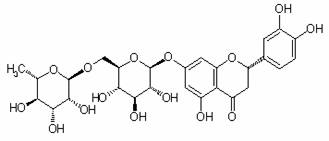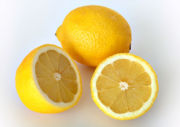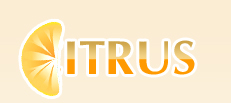ERIOCITRIN
Identification
Ingredient |
Eriocitrin |
Structure:
 |
Synonyms |
Eriodictyol-7-O-rutinoside |
Molecular Formula |
C27H32O15 |
Molecular Weight |
596.54 |
CAS no. |
13463-28-0 |
EINECS |
236-668-7 |
Resource
Eriocitrin is an ingredient derived from natural products, and it is contained in a juice of citrus fruits such as lemon and lime which have been already eaten in a large amount of several tens of milligrams per 100 ml.
Further, a peel and a squeezed residue are secondary products provided in squeezing a fruit juice. The extraction of an active ingredient by reusing these portions is industrially quite useful, and this is extremely profitable from the aspect of utilizing a waste. Still further, in the industry of the fruit juice, besides the peel and the like, waste liquors such as feeding water and washing water used in that treatment are provided in large amounts, and these can be utilized as eriocitrin solutions.
Scientific support
Eriocitrin and its metabolites by intestinal bacteria (eriodictyol, 3,4-dihydroxyhydrocinnamic acid, and phloroglucinol) exhibited stronger antioxidative activity and had approximately the same activity as (-)-epigallocatechin gallate. Eriocitrin and its metabolites are powerful antioxidants using an in vitro oxidation model for heart disease.
Eriocitrin, a flavonoid glycoside present in citrus fruit. It is certified that there is no problem with a safety to humans. It is negative in the mutagenicity test according to Rec-assay or Ames assay.
Application
A food material having a high concentration of eriocitrin as an antioxidant ingredient derived from citrus fruits can industrially be produced at a low cost. Further, the product is a food material having a high concentration of eriocitrin and having less bitter and rough tastes. Accordingly, when this material is added to beverages or foods, beverages or foods having less unpleasant bitter and rough tastes and having a high antioxidant effect can be obtained. Consequently, foods which help prevent diseases derived from habits of daily life can be provided.
Lemon (lime) bioflavonoids complex having 4% of eriocitrin can be utilized in beverages, foods and alcohols described below.
(1) Soft drinks black tea, barley water, green tea, oolong tea, blend tea, wild grass tea, herb tea, coffee, fruit juice, vegetable drink, cocoa, soybean milk, sports drink, carbonated drink, and milk drink
(2) Health foods vitamin drink, nutrient and nutrient aid food
(3) Other foods seasonings, vinegar, dressing, soup and "furikake" (foods for sprinkling on cooked rice)
(4) Alcohols cocktail, "chuhai" ("shochu" (low-class distilled spirit) diluted with soda water), "sour" (mixture of spirit, lemon juice, sugar, etc.), beer and wine
(5) Sweets candy, biscuit, caramel and snack sweet.
Availability
Commercial Eriocitrin 4% is obtained by extraction from Lemon (peel,immature fruit).

Lemon
Warning:
Above information is only knowledge,not an instruction of usage for this product. The owner of this webiste should not be responsible for any damage because of misuse of the product. |



